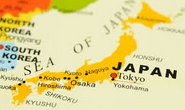Government/Policy

April 4, 2022
Japan TRQ Officially Goes Into Effect With Biden Proclamation
Written by Michael Cowden
US President Joe Biden has officially implemented a tariff-rate quota (TRQ) that will ease Section 232 restrictions on steel from Japan.
“I have determined that imports of specified volumes of eligible steel articles from Japan will no longer threaten to impair the national security,” Biden wrote in a presidential proclamation.
![]() The proclamation is dated Thursday, March 31. The TRQ quota with Japan officially went into effect on Friday, April 1.
The proclamation is dated Thursday, March 31. The TRQ quota with Japan officially went into effect on Friday, April 1.
Details of the agreement – quarterly quota limits and breakdowns individual steel products – are available from US Customs and Border Protection (CBP) here.
Recall that Section 232 tariffs – 25% in the case of steel imports and 10% for aluminum imports – were applied to most countries, including Japan, by the Trump administration in 2018.
The Commerce Department and the Office US Trade Representative on February 7 announced a deal to replace the blanket tariffs with a TRQ, or soft quota.
The TRQ with Japan allow 1.25 metric tons (1.37 million short tons) to be imported tariff free. Any Japanese volumes over that amount remain subject to the US national security tariff.
The US agreed to a similar deal with the EU in late October. The EU TRQ went into effect at the beginning of this year.
The US and the UK have also negotiated a TRQ arrangement that is slated to take effect on June 1.
President Biden in his proclamation indicated that no additional deals would be forthcoming.
“I have determined that it is necessary and appropriate, at this time, to maintain the current tariff level as it applies to other countries,” he wrote.
South Korea, for example, has sought an easing of the absolute, or hard, quota that it agreed to in exchange for exemption for the 25% tariff. A hard quota means no volumes above a specified limit are allowed to enter the US
US trade experts have said that the focus of steel trade talks has shifted from Section 232 to negotiating a “global arrangement” on reducing carbon emissions with the EU.
Those discussions are still in their preliminary phases. And a deal might not be resolved until late 2023. But any C02 pact with the EU could establish a template that could be used with other US trading partners.
By Michael Cowden, Michael@SteelMarketUpdate.com







